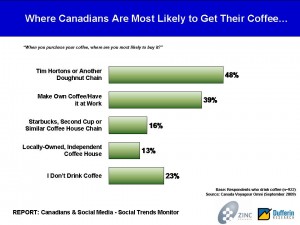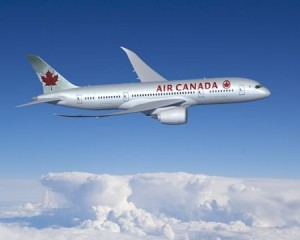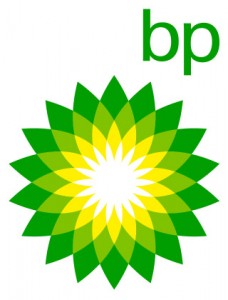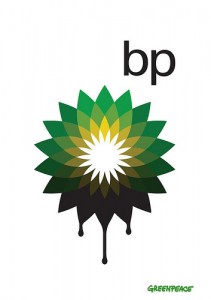I chose this article because it ties in with Class 6 Instructions on marketing and points of parity/difference.
Making Starbucks recession proof from http://www.financialpost.com/executive/story.html?id=1047518

Canadian coffee shops market share occupy a small market share compared to larger rivals like Tim Horton's taken from : http://zincresearch.wordpress.com/
The demand for Starbucks coffees seems to be decreasing, due to higher prices (with 12% HST, the price is even steeper).
Starbucks’ marketing campaign does not seem to be effective. Its market share is eroded due to consumers’ preferences for indie, hip coffeeshops. Starbucks is an established, strong brand name, and one of the top coffee players but it is capitalizing on not-as-desirable aspects like “authenticity”. This might work against it; proliferation of Starbucks stores does mean that it is becoming more commercialized.
As a brand leader, Starbucks should focus on associations that may not be unique to its brand – its points of parity. These include “great-tasting coffee, reliability, speed, convenience, and cleanliness for the customers’ dollars.” These are common to most coffeehouses, but allow Starbucks to cement its brand position. This prevents it from being blindsided by its rivals – Tim Horton’s, Blenz Coffee. It can then emphasise its major point of difference – “consistency of quality” throughout Starbucks stores which practise rigorous quality control.





